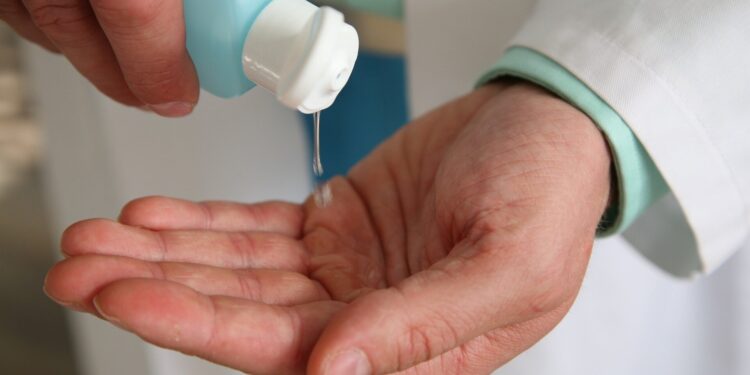Credit: Pixabay/CC0 Public domain
Does the type of solution surgeons use to disinfect the skin before surgery impact the risk of surgical site infection? According to new research from an international trial jointly led by McMaster University and the University of Maryland School of Medicine, yes, it is.
Researchers in the PREPARE trial, which enrolled nearly 8,500 participants across 25 hospitals in Canada and the United States, found that using povacrylex iodized in alcohol to disinfect a patient’s skin could prevent surgical site infection in thousands of patients each undergoing surgery for a closed fracture. year.
The results, published in The New England Journal of Medicineare poised to cause many hospitals to consider a policy change regarding the use of povacrylex iodine in alcohol for fracture surgeries.
“This trial represents a very successful collaboration between McMaster University, the University of Maryland School of Medicine, and 25 trauma centers in Canada and the United States. This multicenter approach allowed us to quickly and efficiently address an important clinical research question that will lead to the prevention of thousands of infections each year,” says Sheila Sprague, co-principal investigator of the trial and associate professor in the Department of Medicine. McMaster Surgery.
“Importantly, our collaborations will continue to expand to address other unanswered questions in the field of orthopedic trauma surgery.”
The trial included 6,785 patients undergoing surgery to treat a closed lower limb fracture or pelvic fracture and 1,700 patients undergoing surgery to treat an open fracture. Closed fractures occur when the bone is broken but the skin is intact. Open fractures have an exceptionally high risk of infection due to exposure of the open wound and bone to environmental bacteria for hours before surgery.
Researchers compared the two most commonly used antiseptic products in the United States and Canada. Patients with closed fractures randomized to receive povacrylex 0.7% iodine in 74% isopropyl alcohol for skin antisepsis had fewer postoperative surgical site infections than those randomized to receive gluconate of 2% chlorhexidine in 70% isopropyl alcohol. In patients with open fractures, the risk of infection was similar between the two antiseptic skin preparation solutions.
“Although some guidelines favor antisepsis with chlorhexidine gluconate over an iodophor, all recommendations have recognized a lack of consensus regarding which agent is most effective. Our results suggest that the use of povacrylex “Iodine in alcohol as a preoperative skin antisepsis could prevent surgical site infection in thousands of patients with closed fractures each year,” says Gerard Slobogean, co-principal investigator of the trial and orthopedic trauma surgeon at the R Adams Cowley Shock Trauma Center at the University of Maryland.
Jeffrey Wells, a member of the trial’s executive committee and patient partner, said: “As a patient involved in the trial, it was my job to ensure that the voices of trauma patients were heard in the design, implementation and dissemination of the trial. »
The authors say that to their knowledge, this randomized controlled trial is considerably larger than previous trials, which allowed them to detect important differences in infection. Although the trial only included fracture surgery patients, they say the results could also be relevant to other surgical disciplines.
More information:
Skin antisepsis before surgical fixation of extremity fractures, New England Journal of Medicine (2024). DOI: 10.1056/NEJMoa2307679
Provided by McMaster University
Quote: Surgeons’ choice of skin disinfectant has an impact on the risk of infection, according to a Canadian-American study (January 31, 2024) retrieved January 31, 2024 from
This document is subject to copyright. Except for fair use for private study or research purposes, no part may be reproduced without written permission. The content is provided for information only.



